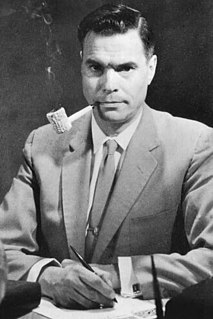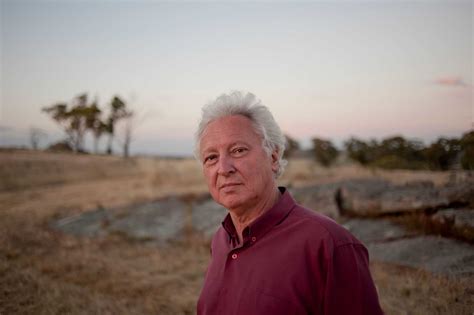A Quote by Henri Frederic Amiel
Only evil grows of itself, while for goodness we want effort and courage.
Related Quotes
I am convinced that courage is the most important of all the virtues. Because without courage, you cannot practice any other virtue consistently. You can be kind for a while; you can be generous for a while; you can be just for a while, or merciful for a while, even loving for a while. But it is only with courage that you can be persistently and insistently kind and generous and fair.
Gratitude is the confidence in life itself... As gratitude grows it gives rise to joy. We experience the courage to rejoice in our own good fortune and in the good fortune of others... We can be joyful for people we love, for moments of goodness, for sunlight and trees, and for the very breath within our lungs. Like an innocent child, we can rejoice in life itself, in being alive.
Goodness has no opposite. Most of us consider goodness as the opposite of the bad or evil and so throughout history in any culture goodness has been considered the other face of that which is brutal. So man has always struggled against evil in order to be good; but goodness can never come into being if there is any form of violence or struggle.
The world would hate His followers, not because of evil in their lives, but precisely because of the absence of evil or rather their goodness. Goodness does not cause hatred, but it gives occasion for hatred to manifest itself. The holier and purer a life, the more it would attract malignity and hate. Mediocrity alone survives.
Courage is required to make an initial thrust toward one's coveted goal, but even greater courage is called for when one stumbles and must make a second effort to achieve. Have the determination to make the effort, the single-mindedne ss to work toward a worthy goal, and the courage not only to face the challenges that inevitably come but also to make a second effort, should such be required.
In the most general terms, the Enlightenment goes back to Plato's belief that truth and beauty and goodness are connected; that truth and beauty, disseminated widely, will sooner or later lead to goodness. (While we're making at effort at truth and goodness, beauty reminds us what we're hold out for.)
While one could hardly say that philosophers have given much attention to the place that the concept of evil has among our moral concepts, they have done so more in the last ten or so years than they had before. I have, therefore, often wondered why there has been so little discussion of goodness. In Search of Goodness is not only an exception: it is an admirable one. It is original and provocative, impressive both in its breadth and depth.
All good things require effort. That which is worth having will cost part of your physical being, your intellectual power, and your soul power—‘Ask, and it shall be given you; seek, and ye shall find; knock, and it shall be opened unto you.’ (Matt. 7:7.) But you have to seek, you have to knock. On the other hand, sin thrusts itself upon you. It walks beside you, it tempts you, it entices, it allures. You do not have to put forth effort. … Evil seeks you, and it requires effort and fortitude to combat it. But truth and wisdom are gained only by seeking, by prayer, and by effort.








































